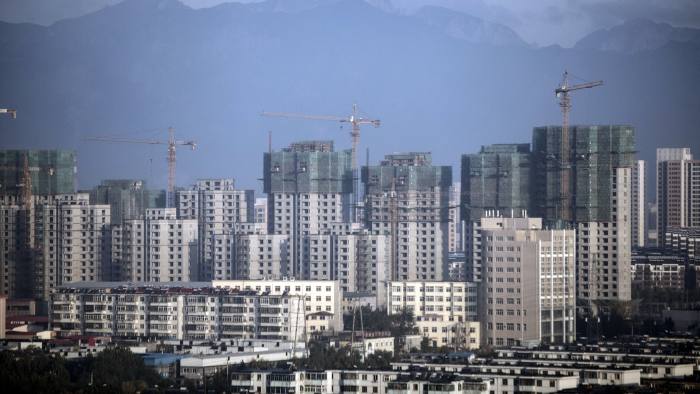China’s housing boom ends as prices fall in top cities
01-20-2017
Decline marks end to huge growth that saw values rise as much as 40% last year
by: Yuan Yang in Beijing
House prices have fallen across most of China’s hottest property markets for the first time in almost two years, marking an end to the enormous growth that saw prices rise as much as 40 per cent last year.
The end of the housing boom will also mean the end to an important source of economic growth that could have helped China hit its economic growth targets this year.“We are seeing a peak in the property market . . . Last year was an incredible surge,” said Shen Jianguang, chief economist at Mizuho Securities Asia.Prices of newly built residential properties dropped between 0.1 and 0.4 per cent in December from the previous month in 12 out of 15 “hotspot” cities, according to data released by the National Bureau of Statistics on Wednesday.Price rises in cities such as Shanghai and Beijing reached 5 per cent a month in August. Investors had piled into the housing market, especially after a dramatic stock rout in 2015, seeing property as one of a few options left for high returns on the mainland.However, their hopes were dashed when the government decided to quash potential asset bubbles last autumn. More than 20 city governments passed restrictions on house purchases and increased the minimum downpayment required for a mortgage.
Financial regulators also stopped property developers from borrowing to finance land acquisitions in an attempt to keep land prices down. Last month, Beijing’s mayor promised that house prices would not rise this year.Although many analysts expect property prices to fall at most 5 per cent year on year in the current downturn, local governments are ready to move to avoid sharper crashes.“Local governments do not want prices to decrease too much,” said Mr Shen, explaining that governments restrict land supply to prop up property prices if they fall too quickly.“The local government cannot endure less construction because then they will have no revenue,” he added. Many Chinese local governments are dependent on land sales to meet their budget requirements.“If prices go too far one way, the government will introduce new policies,” said James MacDonald, head of China research at Savills, a property consultancy in Shanghai.China’s real estate and construction sectors made up a fifth of GDP growth in the first half of last year, according to Liang Hong, chief economist at China International Capital Corporation. GDP data to be released on Friday will show how reliant China’s economy was on property and related sectors in 2016.
Copyright
The Financial Times Limited 2017. All rights reserved. You may share using our article tools. Please don't cut articles from FT.com and redistribute by email or post to the web.


